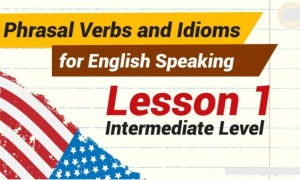rise & raise
rise 有「上升」、「反抗」和「起床」等意思,它是不及物动词,所以如果要加受词,要先加上介系词。
The global oil prices have risen sharply over the past 3 months.
国际油价在过去三个月来快速地上升。
My mom rises early every morning.
我妈妈每天早上都很早起床。
The dictator strikes down those who rise against him.
那位独裁者杀掉那些反抗他的人。
raise 有「提高」、「养育」和「引起」等意思,它是及物动词,后面一定要加上受词。
The bank raised interest rates.
银行提高了利率。
He was born and raised in San Francisco.
他在旧金山出生和长大。

The news of the economic collapse has raised fears among citizens.
经济崩盘的消息已经引起市民恐慌。
raise 也可作为名词,意指「加薪」。
Because of his outstanding performances, he got a raise this year.
因为他的优秀表现,他今年加薪了。
economic & economical
economic 意为经济上的、与经济有关的。
Some people are against the new government’s economic policy.
有些民众反对新政府的经济政策。
economical 意思是节约的、节省的。
I have to be economical because I’m not earning much.
我要节省一点,因为我现在赚得不多。
afterthought & second thought
afterthought 是指原本没有但事后又加上去的想法。
The manager said that the new product was an afterthought.
经理说那新产品原来不在计画内。
second thought 表示重新考虑或改变主意。
On second thought, she decided to reject the offer.
深思熟虑后,她决定拒绝那家公司的工作邀约。
act & action
act 当动词时,有「行动」或「演出」的意思,而当名词是指「具体的行为」。
When an earthquake took place in Nantou, the government acted immediately to set up a mobile command center.
当南投发生地震时,政府立即成立行动指挥中心。
I caught her in the act of checking my cell phone.
她在查我手机时,被我逮个正着。
action 是抽象的行动或动作,指的是积极地去做一件事。
Actions speak louder than words.
坐而言不如起而行。
chance & opportunity
chance 是机率,大部份指偶然的机会,经常含有侥幸的意味。
Is there any chance of getting tickets for tonight’s performance?
有可能买得到今晚演出的票吗?
opportunity 多指特殊的机会,含有期待、愿望的意味。
He was waiting for an opportunity to retaliate.
他在伺机报复。
当泛指一般情况下的机会,两者有时可以互换。
I didn’t have the chance / opportunity to speak with him.
我没有机会和他说话。
但当 chance 表示可能性时,不能用 opportunity 代替
There is a chance that he may be alive.
他也许活着也说不定。
supper & dinner
supper 源自于 sup 这个动词, to sup 是喝或是吸 (汤) ,渐渐衍生用餐的意思。 supper 是指在晚上吃的且比较简单的一餐。
I was sent to bed without any supper.
我没吃晚餐就被叫去睡觉了。
dinner 源自法语 diner 指的是 to dine,它跟 supper 的差别不在吃的时间,而是吃的份量大小,dinner 是吃得比较多的一餐。
The dining hall is usually reserved for weekly formal dinners and breakfast buffets.
餐厅通常都被每周正式的晚餐和早餐自助吧给预定了。
*补充*
对于这两者的区分,不同国家或地区会有不同解释。例如在美国,有一派说法认同以份量大小区分 dinner 和 supper,但也有另一派说法认为 dinner 跟 supper 都是晚餐的意思。在英国北方的看法,dinner 是午餐的意思,tea 则是晚餐的意思。而在英国南方,dinner 就是指晚餐。
arrive & reach
arrive 强调已经抵达的状态,不及物动词,后常接介系词再加上地方和时间。
Several guests arrived at the hotel this morning.
几个贵宾已经在今天早上抵达饭店。
reach 有辛苦抵达的意思,及物动词,需接受词。
How long will it take us to reach the hotel?
还需要多长的时间才能抵达饭店呢?
*补充*
reach for the stars 就是指试图完成一项很艰巨的事情或任务。
Don’t confine yourself to the regular definition of success, and instead you should try to reach for the stars.
不要让自己受限于常规定义下的成功,你要试着去达成更艰难的任务。







